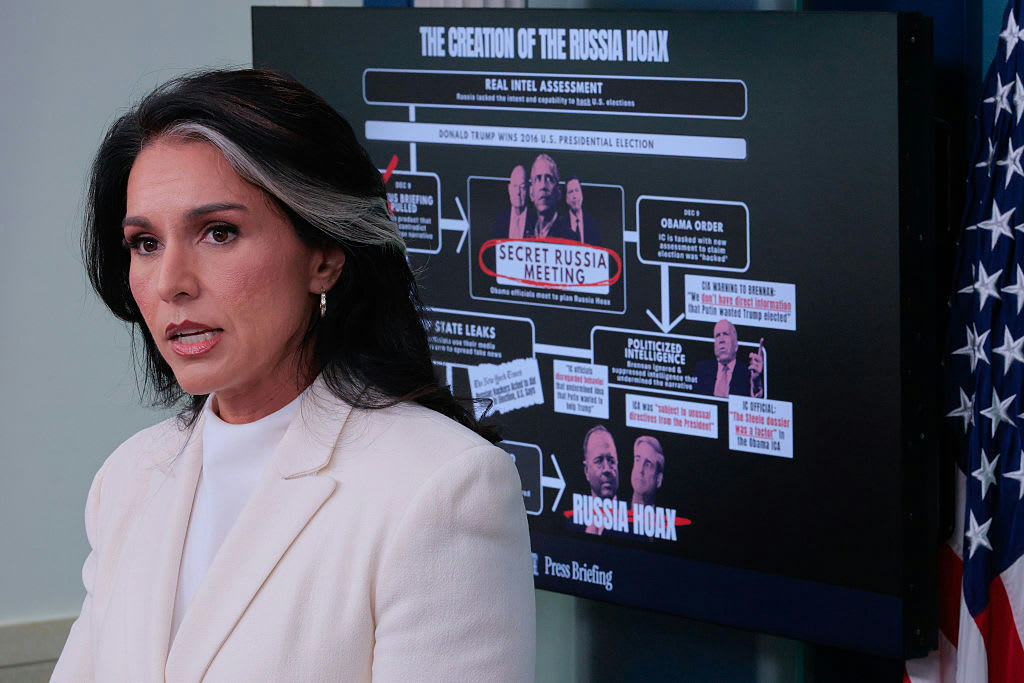Transcript: Leon Panetta on "Face the Nation," August 19, 2018
The following is a transcript of the interview with former Defense Secretary and CIA Director Leon Panetta that aired Sunday, August 19, 2018, on "Face the Nation."
The President's efforts to silence his critics in the intelligence community has not discouraged them from demonstrating the right to free speech, as former CIA director John Brennan, former director of National Intelligence James Clapper and former CIA director Mike Hayden, all appeared this morning in their roles as network contributors. We spoke earlier with former CIA director Leon Panetta, and asked him why he opposed the President's action.
FORMER CIA DIRECTOR LEON PANETTA: Security clearances are critical to our national security and decisions regarding security clearances ought to be based on national security issues. Our concern now is that security clearances are going to be used as a political tool to go after people that the president doesn't agree with or issues that the president may not agree with and we think that undermines the importance of security clearances particularly when it comes to national security.
MARGARET BRENNAN: the White House has said that there are at least nine others that are under review in terms of potentially having their security clearances revoked. It is the president's prerogative to be able to do this. Should it remain that way?
PANETTA: Well, the president obviously has power with regards to security clearances but his power is also limited by an executive order that makes very clear that when it comes to the revocation of a security clearance that it has to be based on national security issues not the politics of somebody, not what that person has said, not how they dress, not how they look but based on national security issues. This president is now going after people. And the indication that I saw is that he's-he's going to provide these names to the press office to use this issue when it's a bad news day so that it can, it can cover that particular news story. I think that's a real misuse of not only security clearances, I think it's a misuse of the Office of the presidency.
MARGARET BRENNAN: But is there any restraint on being able to do that?
PANETTA: Well obviously Congress would be important if Congress decided that it was important to protect the process for security clearances to take action. I think the other issue here is that there is an executive order that's in place. It was signed by Bill Clinton. It was updated by President Bush. It was followed by President Obama. And this president has to abide by that executive order unless he's prepared to change it. That executive order lays out a process for revoking security clearances. And this president is not above the law he's required to follow that executive order.
MARGARET BRENNAN: Are you suggesting that this may not have actually revoked Brennan's clearance that this may not actually be a valid action?
PANETTA: Well I think there are questions raised as to whether or not this president has followed the executive order and whether or not he's provided a due process to those that are going to have their-- their security clearances revoked. Yes the President United States has power, but that power is limited by the Constitution and by the checks and balances in our system. I think the president has to adhere to those kinds of requirements.
MARGARET BRENNAN: You are a former director of the CIA just like John Brennan. So let's look at what some of John Brennan statements have been recently that the president has taken umbrage at; specifically he called President Trump's behavior alongside Vladimir Putin "Nothing short of treasonous". Do you think statements like that overstepped the boundaries of what's appropriate for an official of your level?
PANETTA: Whether one agrees or disagrees with what John Brennan said is not the issue. We have something called free speech in this country. And whether you're a former CIA director or whether you're a former president of the United States or whether you're just a citizen on the street you have a right to free speech to say what you think about our country and our president -
MARGARET BRENNAN: But should there be a different standard -
PANETTA: - and that's the rights that John exercised.
MARGARET BRENNAN: Should there be a different standard for public commentary coming from former national security officials because of this blurring of the lines?
PANETTA: Well I'm--I'm a believer in the broad interpretation of the right of free speech in this country. The president certainly exercises it. And I think all of us have a right to exercise that. Now if somebody uses classified information or reveals classified information or misuses that in a way while he's exercising a viewpoint, then I think that crosses the line. But that was not the case here. John Brennan spoke according to his views of what the president was or was not doing. That in my book is what free speech is all about, and it needs to be protected.
MARGARET BRENNAN: Secretary Panetta, thank you for joining us.
PANETTA: Good to be with you, Margaret.



